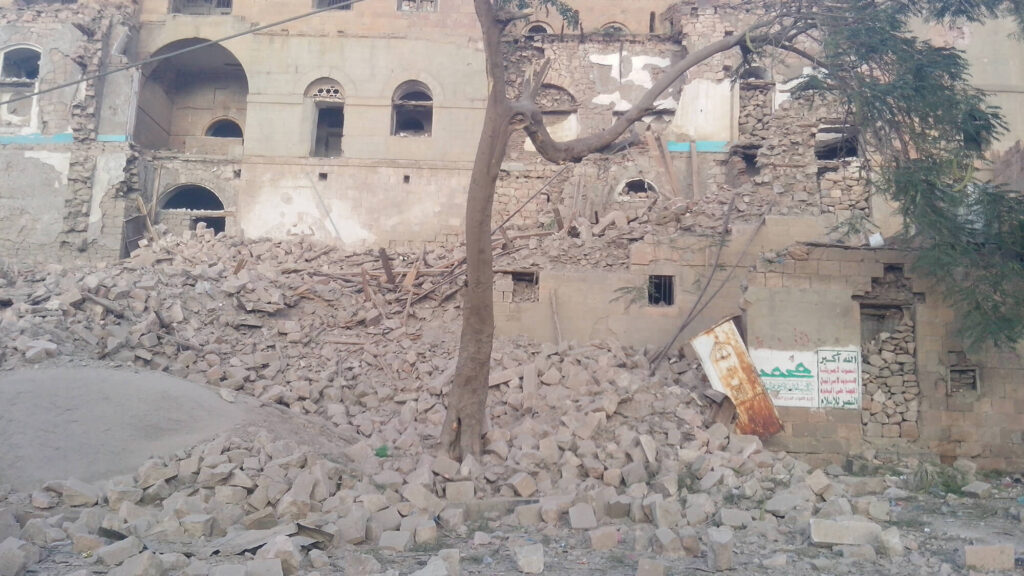Editor’s Note: International Medical Corps’ Yemen Blog presents a rare view of life in Yemen, chronicled by our first responders as they battle one of the world’s worst humanitarian disasters—one fueled by poverty, hunger, disease and a seemingly endless war, now in its seventh year.
The entry below is the first written by Eman Mohammed, who manages our Food Security and Livelihoods programs in Yemen. Originally from the Salah District in Taizz Governorate—an area where much of the war’s early fighting unfolded—she is now based about 70 miles away in the southwestern city of Ibb, where she joined International Medical Corps in 2016 as a junior staff member. In the ensuing five years she has assumed steadily greater responsibilities in a country where the threat of famine is a constant concern. This is her story.
More than six years have passed, but I remember the day the war came to us like it was yesterday. It was nearly 7:00 in the evening on August 20, 2015, and I was at home in the Salah District of Taizz Governorate, where our house was located, very close to the Salah Palace, a well-known local landmark from Yemen’s period as a monarchy. The war had begun five months earlier and we could often hear the airstrikes and the sounds of explosions in the distance. Later we would learn about the victims of those bombings in places far from us—but somehow, we believed the scourge of war would never reach into our own neighborhood.
That night, I was working on my laptop, my three sisters were watching TV and my father was watching the evening news in the other room. My mother came in, clearly worried, and told the girls to turn off the TV before adding, “Those planes have been especially loud today. It’s been nonstop.”
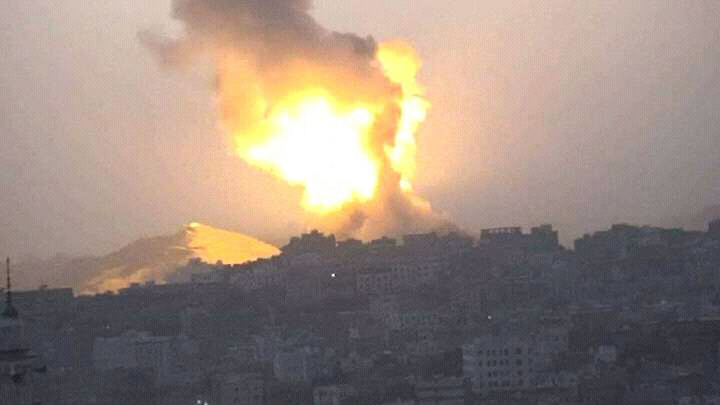
In that instant, the bombing began. It was right over us and the noise was ear-splitting. We were terrified. The windows and doors shattered. All of us were screaming. My father immediately gathered us into the smallest room in the house, which had just one small window. It was so dark that we couldn’t see a thing—we could only feel each other, huddled together in the corner of the room. I counted a total of six airstrikes, each accompanied by violent explosions. We didn’t know exactly where these explosions occurred, only that they had been very close.
Once the bombing stopped, my elder brother—who was living with his own family in a house next to ours—ran in, shouting, “Come on, we have to leave.”
We fled immediately—“we” being my mother, my three sisters, a younger brother and my elder brother with his wife and five children. Only my father refused to go, saying he had to guard the house. We took nothing with us. We simply ran into the night. My brother tried to use the light on his cell phone so we could see where we were walking, but others around us shouted, “Turn off the lights!”
We had not yet understood what had happened, only assuming the airstrikes were targeting the palace, which was rumored to contain weapons. We walked in the direction of the house of my sister, who lived with her family in another neighborhood, farther from the palace. On the way, we heard the screams and wails of the frightened and the wounded—but we still didn’t fully comprehend what exactly had happened, and the impact it would have on all our lives.
Widespread Destruction
We arrived at my sister’s house and found that the situation there was also confused and unclear. But at least we felt safer. About two hours passed before news began to spread about the victims of the bombings. The homes of four of our neighbors had taken direct hits and many had died. Later, more news came to us: 22 of our neighbors had perished. My good friend, her sisters, her father and her mother were all dead, and the widespread destruction left by the attack had prevented efforts to retrieve the bodies.
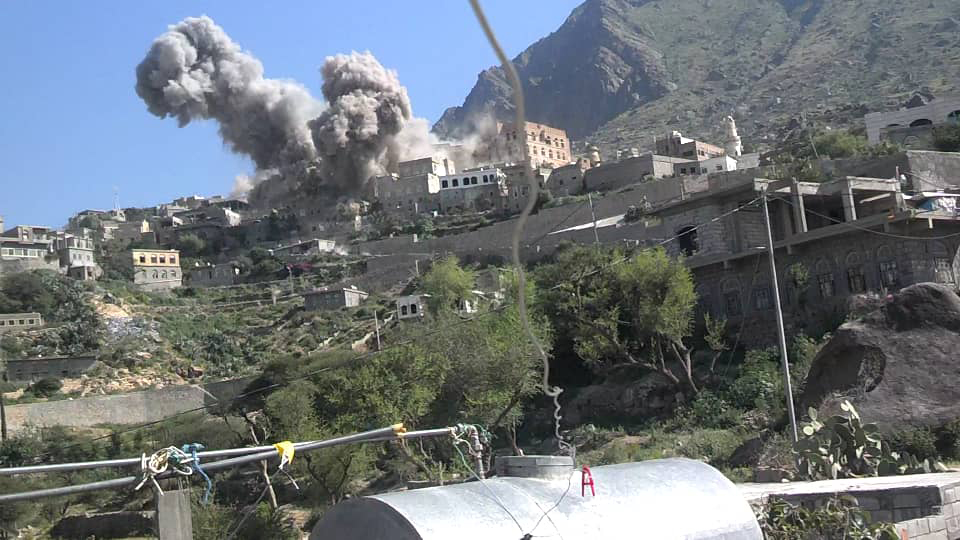
I still find it hard to describe my feelings when I learned what had happened. It was an indescribable jumble of emotions: sadness, fear and a dread of what would happen next. Everyone seemed to be asking the same question: what awaits us now?
The palace, which everyone now believed had been the attack’s main target, sustained only minor damage, while the homes of those living on each side of the palace had been totally destroyed and their occupants killed. People were terrified, expecting new airstrikes because the palace remained largely untouched.
Fearful of new attacks, people began abandoning their homes to seek refuge in areas further away from the palace. My family and I found ourselves also compelled to leave. All the houses across our own neighborhood, as well as neighborhoods further away, were suddenly viewed as unsafe. As a result, we decided to seek temporary refuge at my uncle’s home, in a small village more than a mile from the palace. It was our first displacement, and we stayed for 17 days.
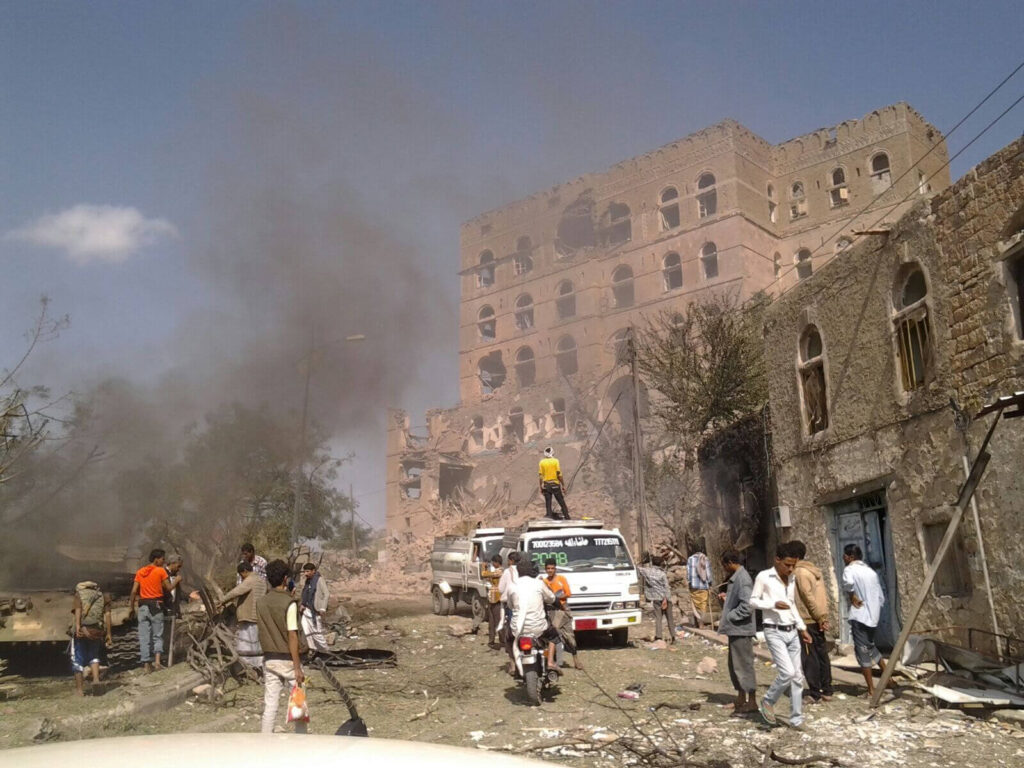
It was hard. Reeling from the shock of having to abandon our home and adjusting to the spartan living conditions in the village, I look back at those 17 days as one of the toughest periods of the war for us. My uncle’s house was small and we were 12 people, all of whom had to squeeze in together with his family. The nearest markets to buy food were far away and the journey to reach them was considered unsafe.
Moving On
We soon realized we had to move on. With nowhere else to go, we returned to my sister’s house, which became our second displacement. We started to settle there, despite the difficult living conditions and the continued struggle to find food and then prepare it. Many roads had been blocked by debris, making it difficult to move around. There were shortages of cooking gas, electricity and many other services. Following a two-month pause of airstrikes in our old neighborhood and surrounding neighborhoods, the strikes resumed with a vengeance. This time they hit palace directly—along with families living in two homes nearby who could not afford to leave the area. We had always been proud to be neighbors of that palace, but now it lay in ruins.
We stayed at my sister’s house for eight months. At one point, after all colleges, universities and schools in Taizz had closed, we decided to send my youngest sister—a medical student at Taizz University—to complete her studies in neighboring Ibb Governorate, where conditions were safer.
During that time, conditions began to improve in our old neighborhood. It went quiet—so quiet that we decided conditions had become safe enough to return home, so we began preparations to return. Unfortunately, in the same week that we had planned to go home, we were shocked to discover that the fighting had returned—this time as a ground war, waged in the streets. Clashes erupted everywhere. Gradually the situation became unbearable.
We had become trapped and there was no easy exit from our neighborhood. Roads were closed and we were unable to rent a car to get out. When the fighting intensified, we decided to walk out on foot, in conditions that can only be described as horrific. Bullets flew everywhere. For long stretches we had to walk in sewage ditches until we were free of the fighting and near to our goal: my cousin’s house, in the Al Hoban area of eastern Taizz Governorate. This was our third displacement. We had taken virtually nothing with us except a few personal items. I took my laptop.
We stayed with my cousin for three days before renting a house whose owner was living in Saudi Arabia. The house was unfinished. No doors, no windows—totally empty inside. It was a risk to make a trip home at that time, but my brother went back to bring us some furniture.
Finding Stability—and Purpose
As time passed, I realized that though the village was safe from the fighting, I was achieving nothing. I felt useless. I was about out of money because the company I had worked for had closed, due to the war. My elder brother was a teacher, but the war had interrupted his regular monthly salary until it was eventually cut off completely. I decided to leave for Ibb, where security conditions were much better. I started looking for a job to support myself and my family.
Ibb was our fourth displacement. We had no relatives to stay with there, so I stayed in the medical school’s women’s student dormitory, where my sister was living with her colleagues. I stayed there for two weeks, constantly searching for a house where I could live with my family, and searching for a job to support us. I applied for many jobs at both international and local NGOs, as well as at private schools.
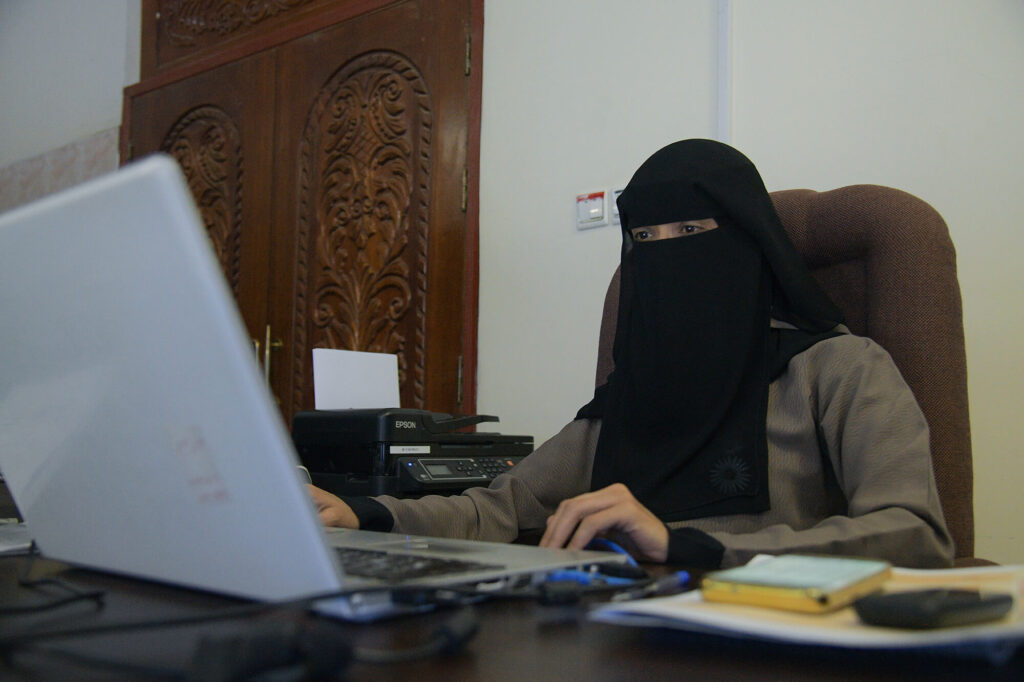
Finally, in October 2016, International Medical Corps contacted me, and I interviewed for the position of food security assistant. It’s impossible to describe how elated I was when I learned that I had gotten that job. I soon rented a house in Ibb and moved in with my family. More than 14 months had passed since my family and I had become internally displaced persons—IDPs—driven from our home by a war that has caused unimaginable suffering and that seemingly knows no end.
Today, more than five years later, I still live in the same house, and continue to work with International Medical Corps. The job has changed our lives, both personally and professionally. It has provided a reliable source of income that enables me to live in a safe environment in Ibb with my family. And, as a humanitarian worker, it has given me the rare opportunity to ease the suffering of so many vulnerable people in my country whose lives have been affected by the cruelties of the war.
View previous blog:
How Growing Up with Autism Created a Spirit of Advocacy and Service
